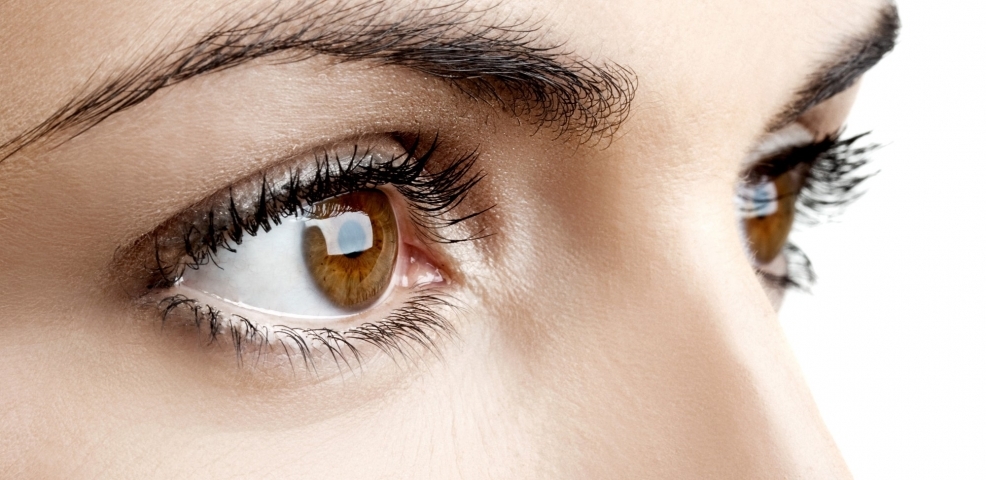Our eyes can teach a lot about us: What we feel or think, do we speak the truth or lie – but also about our health and our chance to get different kind of diseases. On the contrary to common beliefs, There aren’t two different genes – one for blue eyes and one for brown eyes, But 12-13 different genes that determine your eye color and other inner process in our body.
1. The diseases you suffer from
Researches done in the past show that our eye color has a direct connection to diseases such as diabetes, melanoma and vitiligo. Blue eyed people tend to suffer less from vitiligo, A situation where the brown color pigment disappears from certain parts of the body and leave marks that looks “bleached”.
A situation where a person’s eye are different colors, for example one brown and the other blue, might show different diseases like Horner syndrome or Glaucoma Figmantrit. Further more, people who has advanced diabetes might notice their eye color becomes darker.
2. Your personality
Research done in Australia, where 366 participants were checked, revealed that people with bright eyes tend to be much more competitive and less empathic, friendly and generous than people with dark eyes.
That might sound like an exaggeration, and could require more research to be done, but researchers claim that this has to do with our evolutionary roots: thousands of years ago, our northern-european ancestors thought blue eyed people are more attractive and ideal for mating. That might be why blue eyed people are more competitive today.
3. The way you deal with pain
Some of the scientists claim that your eye color might suggest the pain threshold of your body. A recent study showed that out of 58 women, those with bright eyes tend to experience less pain while giving birth, compared to women with dark eyes.
These women not only experience less physical pain, according to the study, they also experienced less anxiety, depression and negative thoughts.
Other studies show that the color of our eyes can also point out how much can we handle while drinking alcohol. in the past, researches showed that light-eye people can drink larger amounts of alcohol than dark-eyed people.
4. Your genetics
At 2008 scientists discovered that all blue-eyed people share a straight genetic link to the same father, a man that had a genetic mutation 6,000-10,000 years ago. Until that time – all humans had only brown eyes. Mutation that affected the OCA2 gene made a change that “shut-off” the ability to make brown eyes. the genetic change created some kind of ‘switch’ that limits that ability to produce melanin, which leads to blue eyes.
If you have blue eyes, you share the same ancestor with all the blue-eyed people around you.
5. How much can you be trusted
Is it possible that you can trust brown eyed people a lot more than bright-eyed ones? Researchers say that people with brown eyes are significantly more reliable than people with blue eyes. however, the reliability of a person might change by the shape of the face: Even though brown eyed people’s faces were conceived to be more reliable than blue-eyed people, its not just the eye color that tipped the balance towards brown eyes, but some other facial features as well.
They Don’t Pass Judgment
If you want to be likeable you must be open-minded. Being open-minded makes you approachable and interesting to others. No one wants to have a conversation with someone who has already formed an opinion and is not willing to listen.
Having an open mind is crucial in the workplace where approachability means access to new ideas and help. To eliminate preconceived notions and judgment, you need to see the world through other people’s eyes. This doesn’t require you believe what they believe or condone their behavior, it simply means you quit passing judgment long enough to truly understand what makes them tick. Only then can you let them be who they are.
They Don’t Seek Attention
People are averse to those who are desperate for attention. You don’t need to develop a big, extroverted personality to be likeable. Simply being friendly and considerate is all you need to win people over. When you speak in a friendly, confident, and concise manner, you will notice that people are much more attentive and persuadable than if you try to show them you’re important. People catch on to your attitude quickly and are more attracted to the right attitude than what—or how many people—you know.
When you’re being given attention, such as when you’re being recognized for an accomplishment, shift the focus to all the people who worked hard to help you get there. This may sound cliché, but if it’s genuine, the fact that you pay attention to others and appreciate their help will show that you’re appreciative and humble—two adjectives that are closely tied to likeability.











.jpg&w=360&h=205&q=60&zc=2&cc=000000)

.jpg&w=360&h=205&q=60&zc=2&cc=000000)









